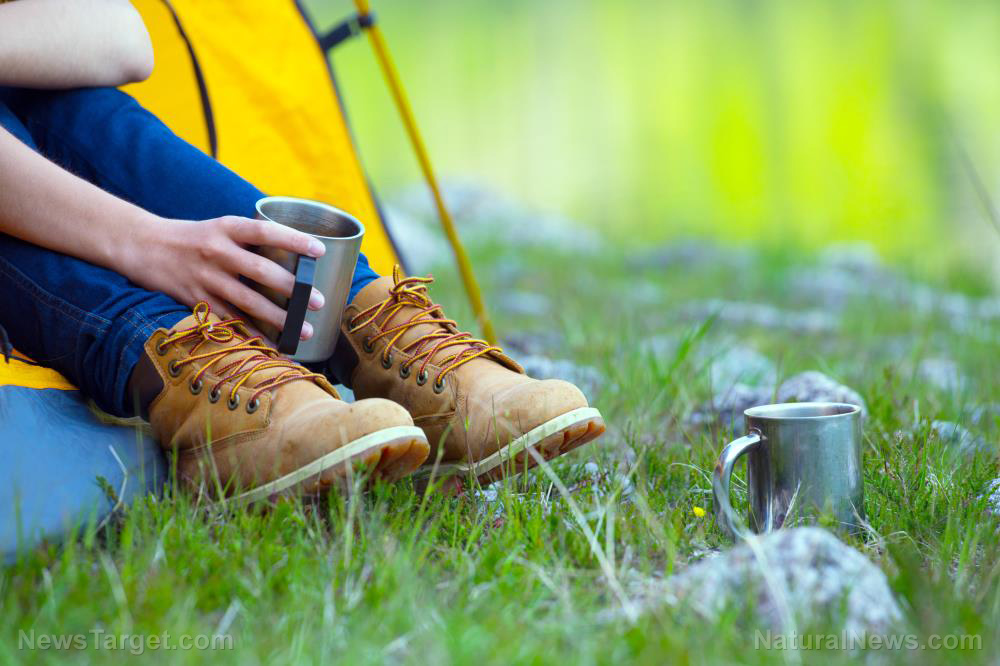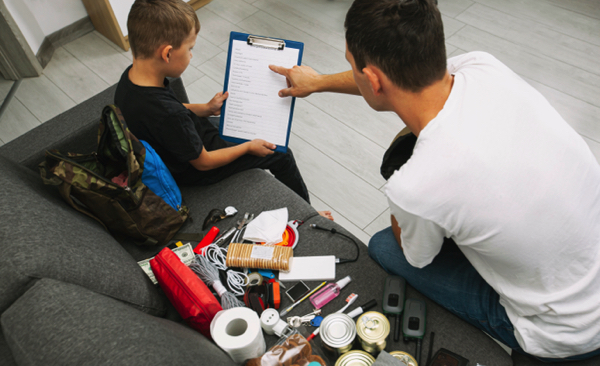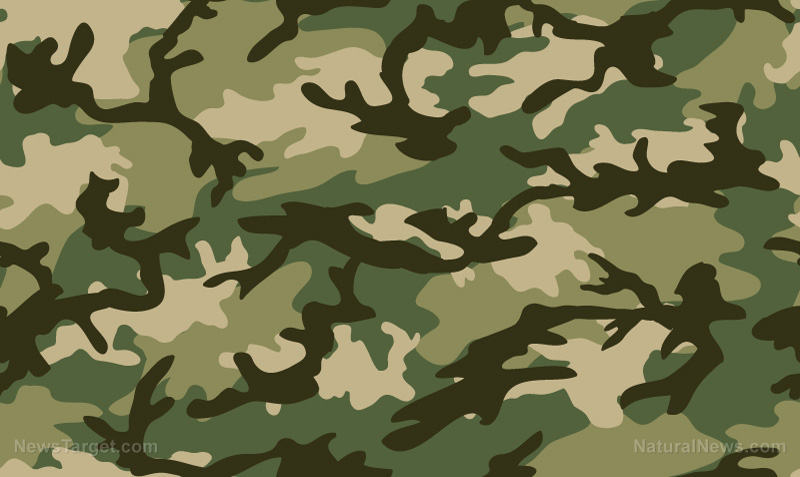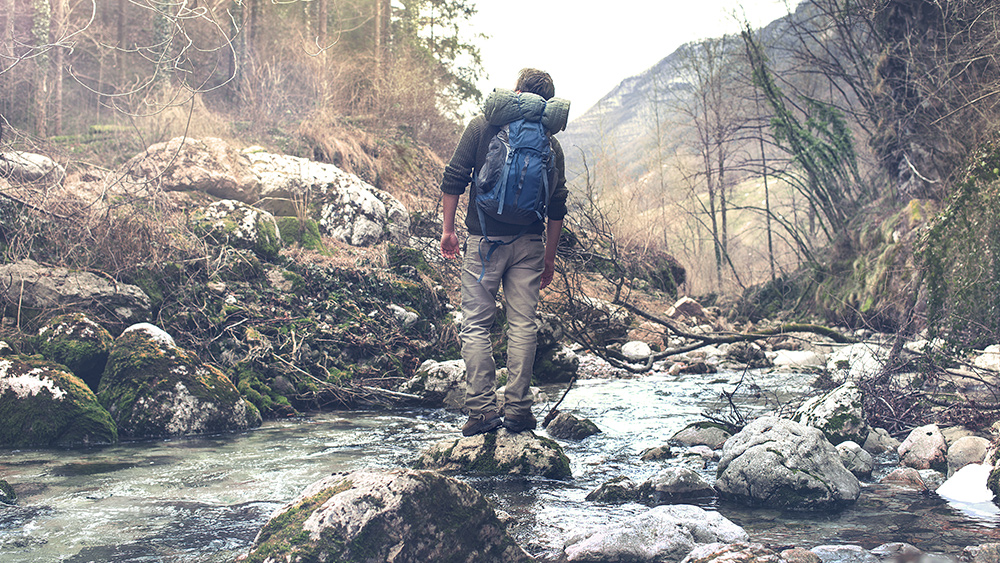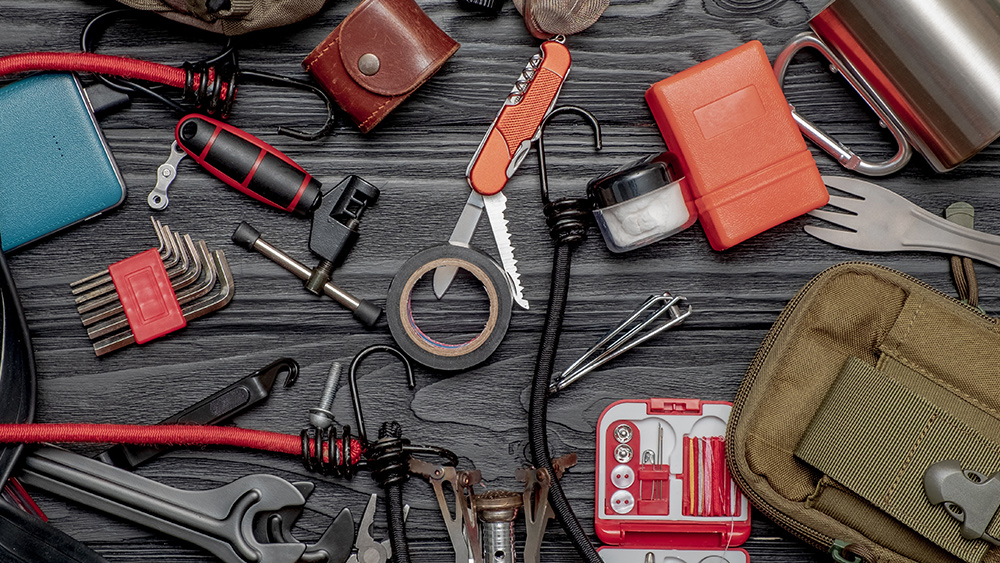
Here is a short list of items you may have in your house that you can repurpose in a survival scenario.
Aluminum foil
Because of its durability, insulating properties and extreme malleability, you can use tin foil to cook food easily by shaping it into a bowl or pot or wrapping it around a Y-shaped branch to turn it into an improvised frying pan.
Aside from its uses in food preparation, aluminum foil also makes an excellent emergency tool for signaling for help because of its reflectivity, and with the help of an AA, AAA, C or D battery, you can use foil gum wrapper as a fire starter as well.
Cut or tear the gum wrapper lengthwise into three equal (or near equal) strips. Next, cut each of these wrapper strips into an hourglass shape – about 1/16th of an inch at the center of the strip. This narrow center section is the point of the wrapper strip that will spark and ignite into a flame that will spread to both sides of the wrapper.
You will have just a few seconds to ignite your tinder with the flame created by your battery, so have plenty of dry tinder close by before sparking your prepared wrapper strip. Touch the foil side of both ends of the gum wrapper to the positive and negative poles (ends) of your battery. This step can release some heat, so protect your hands with gloves, a scarf or a rag if you can. The center of your wrapper strip may spark quickly, so be prepared. When it sparks, light your tinder immediately.
If your fire doesn’t ignite on the first attempt, try again with another gum wrapper strip. If your first strip didn’t spark to create a flame, the hourglass shape at the strip's center may not be thin enough. Try making the center of the wrapper strip thinner by trimming it down, then try again.
We are building the infrastructure of human freedom and empowering people to be informed, healthy and aware. Explore our decentralized, peer-to-peer, uncensorable Brighteon.io free speech platform here. Learn about our free, downloadable generative AI tools at Brighteon.AI. Every purchase at HealthRangerStore.com helps fund our efforts to build and share more tools for empowering humanity with knowledge and abundance.
Coffee filters
If you’re using coffee filters to remove debris and solid matter from collected water, boil the water after filtering as it may still contain harmful microorganisms. Coffee filters can also be used as disposable plates, toilet paper or makeshift bandages to stop bleeding.
Dental floss
Here are some survival uses of dental floss:
- Make a lean-to - Thread the floss through the holes of a tarp or the corners of your emergency blanket.
- As lashings - If you need a larger shelter, use your dental floss to lash branches together so you can build one or use floss to make your shelter a little sturdier.
- Make a "hobo" alarm - Tie a few tin or aluminum cans and lids to a length of the floss and string across the perimeter of your camp or outside your home. Because dental floss is difficult to see, intruders can trip and sound your hobo alarm.
- As restraints - If you have to restrain somebody, several strands of floss around their wrists should do it.
- Mend clothing - Floss is strong enough to mend shirts, pants and even shoes.
- As shoelaces - If your shoelaces break, thread dental floss and use that instead. It’s not perfect, but it should be strong enough to keep your shoes on your feet.
- As straps for trash bags - You can use dental floss to secure garbage bags to wrap around your feet and lower legs to keep them dry while traveling through marshy, snowy or wet areas.
- Make an improvised fishing pole - If you don’t have a fishing pole, improvise one out of floss and a tree branch by fashioning a hook with a safety pin and tying it to the end of the line.
Duct tape
One of the most versatile items to have in your home, there are endless ways you can use duct tape for survival. It is great for repairing clothing, shoes and tools; building and waterproofing a shelter; creating a rope and so many more.
Garbage bags
A single roll of heavy duty-garbage bags is lightweight and can easily fit in your pocket or backpack without weighing you down. In an emergency, you can use garbage bags for sealing shelters, building an emergency lean-to or waterproofing sleeping areas. You can also use them to collect and store water, make shoes or wear them as a cape (poncho or shawl) over your clothes as a waterproofing layer. Heavy-duty garbage bags can be repurposed and reused multiple times for various ingenious applications.
Hand sanitizer
Aside from protecting you from viruses and disease-causing bacteria, your hand sanitizer is potent enough to take the place of your deodorant in case you forget to apply, bring or run out of it. A hand sanitizer is excellent at soothing and taking away the itch from nasty insect bites and has antiseptic properties that can prevent bites from getting infected -- just make sure your it is fragrance-free. According to the National Institute of Allergy and Infectious Diseases, perfume and cologne, especially floral scents, can attract mosquitoes.
If your hand sanitizer is free of fragrance and dyes, you can use it to pre-treat stains on clothing. It works on most fabrics, except for acetate, rayon, silk or wool. Simply apply hand sanitizer to the stain and let it sit for a few minutes then take a soft piece of cloth and dab it until the stain fades. Launder the clothing as soon as you can. (Related: Everyday items that can be used for survival and prepping.)
Lip balm or lip salve
A lip balm or lip salve can be used for bug bites to stop itching or swiped across cuts and scrapes to stop bleeding. You can also apply lip balm or salve to wind- or sunburned skin or use it as a candle. You can even repurpose an empty ChapStick tube as a storage container for matches and other small first-aid survival essentials.
Pantyhose
Cheap, easy to pack and lightweight, pantyhose can be used as a fishing net or for storing food items away from predators by suspending them off the ground. Hanging your food this way will also keep it from getting wet from the dew on the ground.
Paper clips
Paperclips bend easily but are difficult to break, which means you can twist or link them to suit your purpose. They make excellent fish hooks like safety pins, makeshift needles and lock pickers. In addition, if you’re running low on first aid supplies, paper clips are ideal for creating a splint for small breaks or strains to your fingers or toes.
Just look around your home and you’ll be surprised at the number of versatile items you already own that can double as survival gear. Combined with some knowledge of basic survival skills, these items may one day give you an advantage in a survival situation.
Watch the following video to learn about household items you can repurpose in a survival scenario.
This video is from the Daily Videos channel on Brighteon.com.
More related stories:
How to repurpose household items to create powerful remedies.
10 Everyday items you can use for survival.
5 Ordinary household items that have many survival uses.
Sources include:
Please contact us for more information.














